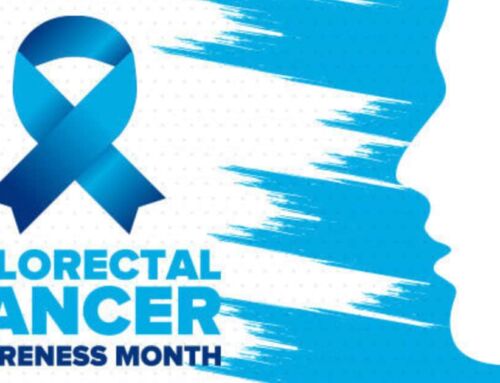Much of the content that I’ve written on my website relative to improving digestive symptoms and conditions almost always includes recommendations promoting a healthy diet and an active lifestyle. As a result, I wanted to give a more detailed explanation regarding how exercise can benefit your digestive system, so that you better understand the direct correlation between an active lifestyle and better digestive health.
Exercise and Overall Digestive Health
Before discussing how exercise can contribute to improving our digestive health, I wanted to briefly explain the gut/intestinal microbiome and the importance of keeping it in balance. The gut microbiome is defined as the collection of microbes or microorganisms that inhabit an environment and create a sort of “mini-ecosystem”. Our gut microbiota contains tens of trillions of microorganisms, including at least 1000 different species of known bacteria.
According to the Gut Microbiota for Health organization, some of the functions are:
- It helps the body to digest certain foods that the stomach and small intestine have not been able to digest.
- Assists with the production of some vitamins (B and K).
- Combats aggressions from other microorganisms, maintaining the wholeness of the intestinal mucosa.
- Plays an important role in the immune system, performing a barrier effect.
- A healthy and balanced gut microbiota is key to ensuring proper digestive functioning.
With 70% of the immune system located in our digestive system… good health essentially begins in the gut. Therefore, understanding the importance of the gut microbiome is critical, since the best way to keep the gut microbiome in balance and functioning correctly is thru diet, daily exercise and reducing stress.
We’ll now transition into developing a better understanding of how exercise directly effects the digestive system and helps to promote a healthier gut microbiome.
Effect of Exercise on Digestive System
When you exercise, your body isn’t using its energy for digestion. Instead, it slows any digestion currently taking place so it can divert as much blood as it can to feed your muscles and your lungs. Therefore, exercise and digestion are mutually exclusive.
If you’re fit, the amount of blood diverted from your digestive system decreases because the need is less urgent. Your muscles are more efficient when you’re in shape. Over time, regular exercise can strengthen your digestive tract, which will improve intestinal motility and elimination.
Nutrition and Exercising
Give your body the proper time to digest before exercising. If you eat a meal heavy in proteins and fats, you may need a few hours for to properly digest the meal. While your body digests the meal, your blood sugar rises to help with digestion. I recommend, waiting for it to drop back to normal, so you can devote all your energy to your workout.
It’s important to stay hydrated while exercising. Dehydration can cause GI problems while exercising like constipation and acid reflux. Also, our intestines are susceptible to not properly absorbing the nutrients from the food in our system when we are not properly hydrated, which can lead to malnutrition in some cases.
Relationship between exercise and some GI Conditions
We have known for a long time that regular exercise benefits your overall health. Given the effects that exercise has on things like your immune system and the release of natural endorphins into your system that happen during exercise it can also effect different gastrointestinal conditions.
- Constipation – Exercise helps constipation by decreasing the time it takes food to move through the large intestine by increasing the natural contraction of the intestinal muscles. By limiting the amount of water absorbed from the stool into the body makes it easier for the stool to be evacuated.
- GERD – The timing of when you exercise relative to eating meals is important. When the stomach is full, so my recommendation is to wait 2 hours after a meal before exercising to lessen the chance of a reflux occurrence.
- Diverticular Disease – Diverticular disease is more prevalent among those who have sedentary occupations (e.g. sitting at a desk). Regular exercise can help reduce colonic pressure, cause food to transit faster through the GI track and stimulate bowel movements. All 3 of these results are associated with a lower risk of diverticular disease complications. The release of natural endorphins during exercise can help with chronic pain/ discomfort in the abdomen as well.
- Colon Cancer – The National Health Institute notes that in a 2009 study that examined the association between physical activity and colon cancer risk found that the most physically active individuals had a 24% lower risk of colon cancer than those who were the least physically active
Exercise for Better Digestive Health
I encourage regular physical activity and exercise for all my patients and I follow that advice myself. The benefits of increased gut motility, more regular bowel movements, a more healthy diverse gut mircrobiome, decreased risk of colon cancer and improvement of your guts immune system are just a few of the reasons we should all exercise. There are also interesting studies out there like this one to help make that point clear:
- A 2016 study from the National University of Ireland of men’s rugby players and male non-athletes concluded that the athletes had considerably more diversity in their gut microbiomes. Also, the rugby players’ gut flora had larger number of a bacteria called Akkermansiaceae, which is known to decrease systematic inflammation.
The other benefits of regular exercise should be equally clear – it helps relieve stress, helps maintain a healthy weight which helps with conditions like fatty liver, diabetes and heart disease and increases energy during the day. I know there are many reasons (I call them excuses) why it’s hard to exercise and I understand many of us live very busy lives. You need to make the decision for yourself if your physical health is worth the 30 minutes or so a few times a week it takes to schedule exercise into you busy day. You may live longer and healthier because of it. Thanks. RH



